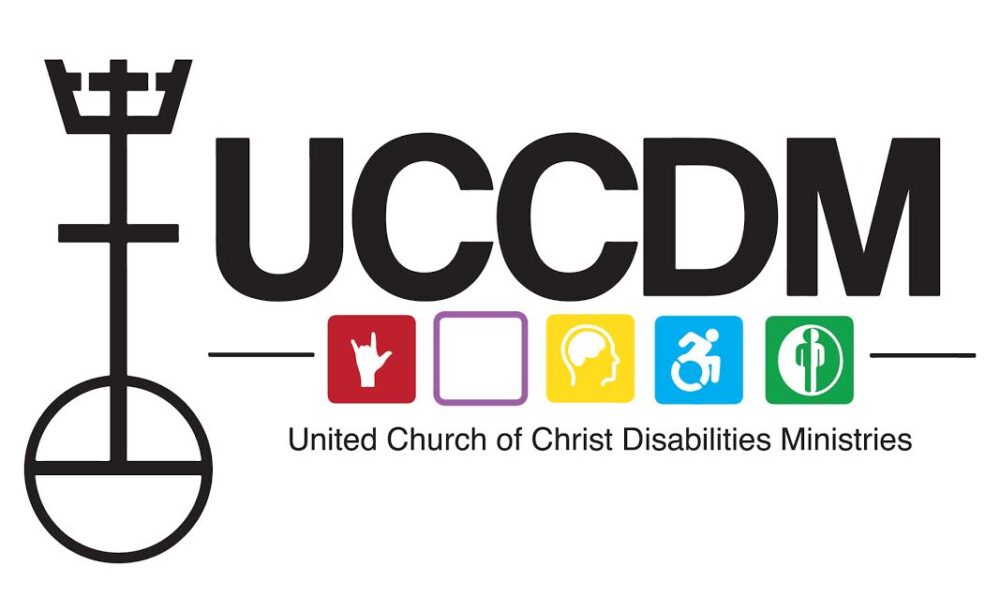
If you found this page helpful, please email the UCCDM Secretary ([email protected]) and let us know. It is only through the emails that the UCCDM Board receives that we are able to tell if we are meeting the needs of UCC members or others exploring Disability Ministry.
Q: Is there a UCC Curriculum available to assist in preparing persons with developmental or intellectual disabilities for Confirmation?
A: No. There is no UCC developed curriculum that had been designed for this purpose. We have notified UCC Resources of this need. Many local pastors have developed their own resources for this purpose. If you are interested in volunteering to develop a resource to meet this need, please contact the UCCDM Secretary. One resource for meeting this need that the UCCDM Board has directed people to is the Elizabeth Boggs Center; William “Bill” Gaventa at the Boggs Center is one of the experts in developmental disabilities whom we turn to, he has spoken at Widening the Welcome, and often will respond to email–feel free to google him.
Q: Our church is planning/exploring renovations to become accessible. What funding resources may be available to assist with this?
A: The UCC does not offer grants to assist church buildings in becoming accessible. The Cornerstone Fund is available to assist local churches with loans for renovations, including those to create accessibility. It has been inquired if Neighbors in Need funds can be used for accessibility purposes, but no firm answer has been received. Some UCC Conferences may have some resources that offer very limited matching funds; so check there. It would also be helpful to inform UCCDM of the accessibility renovations and costs you are looking to fund, as it is often the case that grants are not available because the need for grants can not be demonstrated.
Here is more information on the Cornerstone Fund:
At any given time, ten to fifteen percent of the local churches in the United Church of Christ are engaged in plans for construction or renovation. Most of these situations have an accessibility component to the building plans. When attempting to borrow money from traditional financing sources, churches have long been challenged by disinterested bankers.
In 1994, the Cornerstone Fund was created to make loans to established churches of the United Church of Christ for a wide range of property-related projects, including accessibility. To create the pool of funds from which to make loans, the Cornerstone Fund began offering investment opportunities to individuals, churches and other UCC-related organizations. Today, we celebrate that many of our UCC churches are accessible because of the investments from our churches, and because of the loans provided by the Cornerstone Fund.
For more information, visit Cornerstone Fund
For professional guidance on making renovations for accessibility you may want to contact the UCC Fellowship of Architects:
UCC Fellowship of Architects: In service to God and the United Church of Christ we are called to build and renovate spaces for worship, education, and mission that serve the Christian community and transform lives.…to shape spaces for worship where all are ‘welcome; …to shape spaces that teach God’s story and their community’s story; …to shape spaces that help prepare us to welcome the Spirit; …to shape spaces that rehearse us for the realm of God; …to shape spaces that inspire and propel us to live lives of service.
THEREFORE:
We will gather annually as the UCC Fellowship of Architects to learn from each other, from scholars, theologians, and practitioners, as well as from the sacred spaces in which we gather.
‘We will define, refine, and further the influence of the architecture of worship space on liturgy, and of liturgy on architecture.
Volunteers from the Fellowship of Architects in the United Church of Christ will make a free consultation with a church about a particular building accessibility need.
Since 1988, members of the Fellowship have met to enjoy stimulating lectures and discussion, the fellowship of professional peers, and worship in a variety of inspiring spaces. Members have also traveled together with scholars to experience and study historic and new examples of worship spaces in the middle eastern and European countries of our liturgical and theological roots. Members of the Fellowship have assisted many local churches across the UCC as they contemplated building programs to support current and future ministries. Several members of the Fellowship collaborated on the design of the Amistad Chapel located at the UCC National Church House in Cleveland, Ohio and dedicated in 2000.
